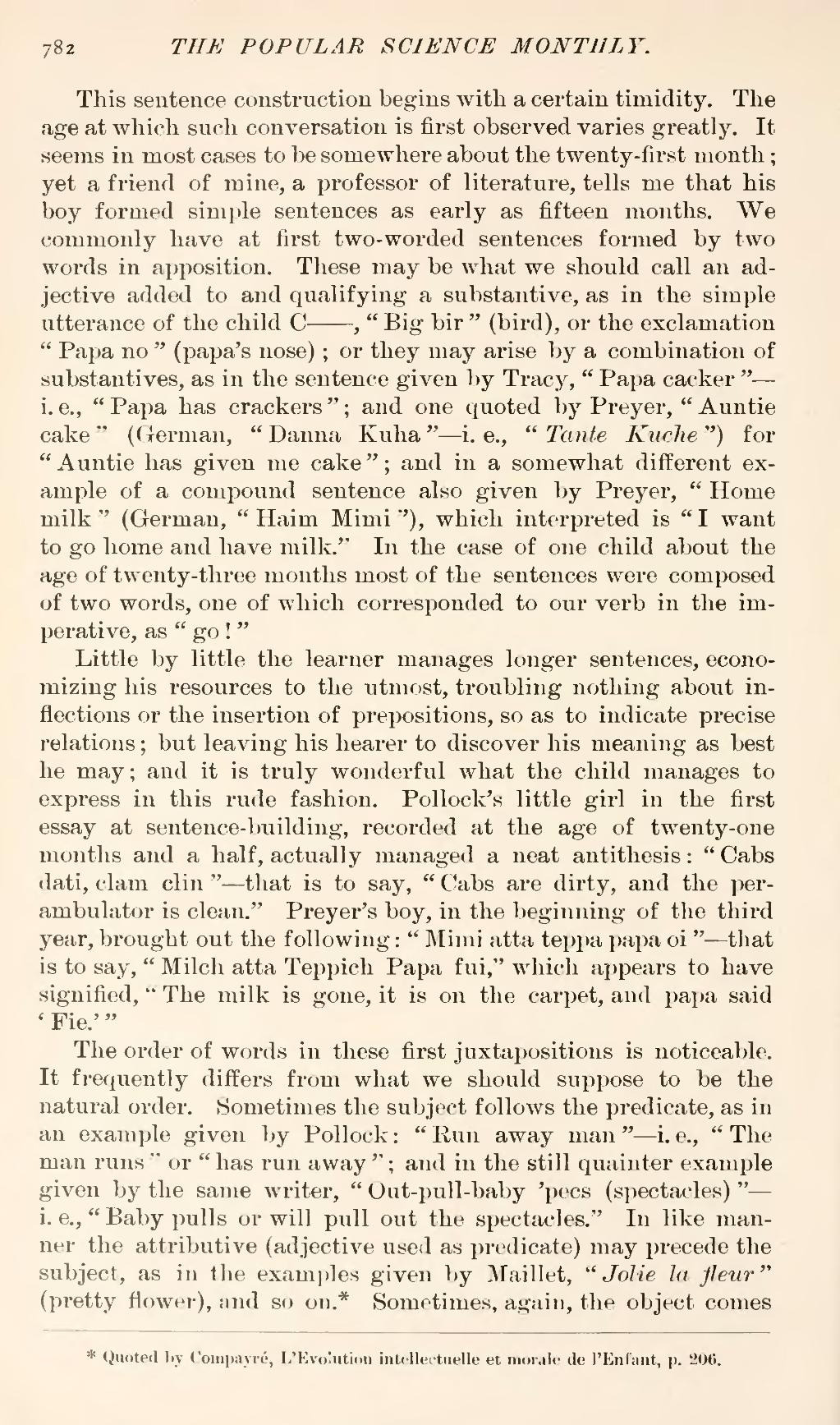This sentence construction begins with a certain timidity. The age at which such conversation is first observed varies greatly. It seems in most cases to be somewhere about the twenty-first month; yet a friend of mine, a professor of literature, tells me that his boy formed simple sentences as early as fifteen months. We commonly have at first two-worded sentences formed by two words in apposition. These may be what we should call an adjective added to and qualifying a substantive, as in the simple utterance of the child C, "Big bir" (bird), or the exclamation "Papa no" (papa's nose); or they may arise by a combination of substantives, as in the sentence given by Tracy, "Papa cacker"—i. e., "Papa has crackers"; and one quoted by Preyer, "Auntie cake" (German, "Danna Kuha"—i. e., "Tante Kuche") for "Auntie has given me cake"; and in a somewhat different example of a compound sentence also given by Preyer, "Home milk" (German, "Haim Mimi"), which interpreted is "I want to go home and have milk." In the case of one child about the age of twenty-three months most of the sentences were composed of two words, one of which corresponded to our verb in the imperative, as "go!"
Little by little the learner manages longer sentences, economizing his resources to the utmost, troubling nothing about inflections or the insertion of prepositions, so as to indicate precise relations; but leaving his hearer to discover his meaning as best he may; and it is truly wonderful what the child manages to express in this rude fashion. Pollock's little girl in the first essay at sentence-building, recorded at the age of twenty-one months and a half, actually managed a neat antithesis: "Cabs dati, clam clin"—that is to say, "Cabs are dirty, and the perambulator is clean." Preyer's boy, in the beginning of the third year, brought out the following: "Mimi atta teppa papa oi"—that is to say, "Milch atta Teppich Papa fui," which appears to have signified, "The milk is gone, it is on the carpet, and papa said 'Fie.'"
The order of words in these first juxtapositions is noticeable. It frequently differs from what we should suppose to be the natural order. Sometimes the subject follows the predicate, as in an example given by Pollock: "Run away man"—i.e., "The man runs" or "has run away"; and in the still quainter example given by the same writer, "Out-pull-baby 'pecs (spectacles)"—i. e., "Baby pulls or will pull out the spectacles." In like manner the attributive (adjective used as predicate) may precede the subject, as in the examples given by Maillet, "Jolie la fleur" (pretty flower), and so on.[1] Sometimes, again, the object comes
- ↑ Quoted by Compayré, L'Evolution intellectuelle et morale de l'Enfant, p. '206.
